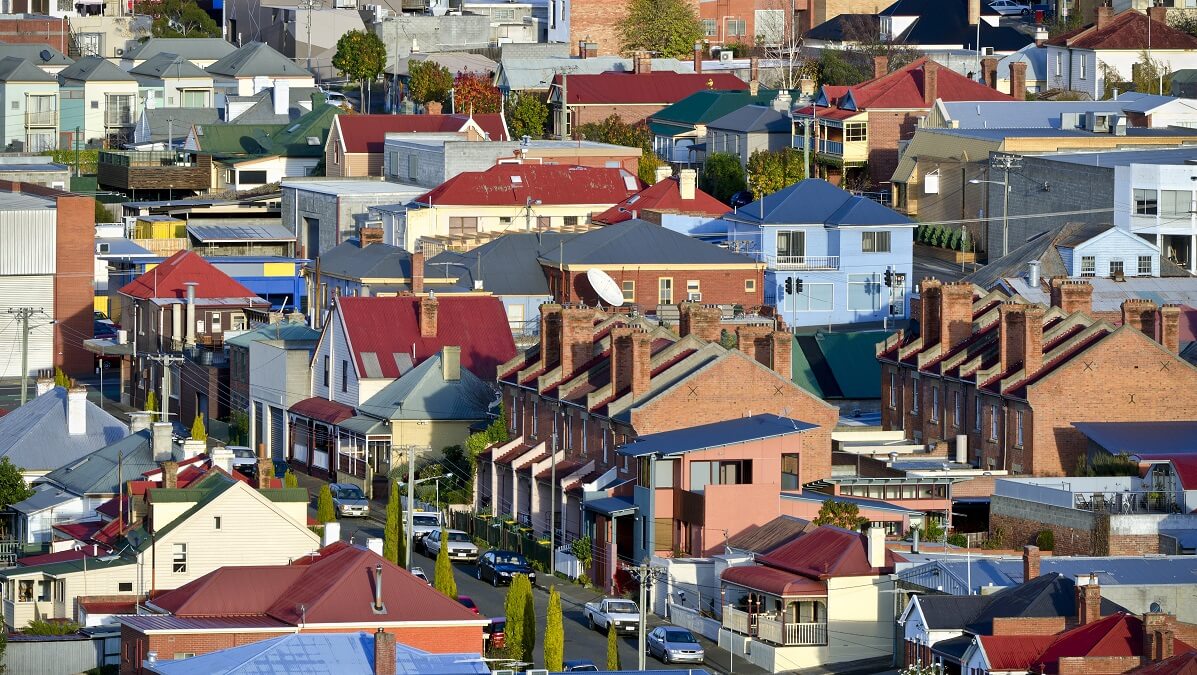The average Australian is moving less frequently and holding on to their home for longer, new research shows.
The median length of time a homeowner owns a property in Australia – known as tenure – is getting longer, according to real estate group Domain.
Its latest Tenure and Profit report found the median length of tenure is nine years for a free-standing house and eight years for a unit.
Breaking the data down further, in cities such as Sydney, Perth and Canberra, the average house tenure is around 10 years, while it’s nine years in Melbourne, Brisbane and Adelaide.
Unit owners in Melbourne and Perth hold their property for an average of nine years, Brisbane and Canberra only seven, while Darwin apartment owners keep their keys for a whopping 11 years on average.
These figures, for both houses and units, are up by an average of two years on last year’s numbers. So, why are Australians holding on to their properties for longer? Is it just a case of loving where we live or is there something else at play?
Relationship between sale prices and tenure
A general rule in real estate (and any investment really) is to hold on to an asset when sale prices are down. And in 2022, average Australian property prices were down 5.2 per cent – the first time that had happened since 2018.
But despite that drop, property investor Michael Yardley says the trend of holding property for longer has been steadily rising over the past two decades – and for the opposite reason.
He says recent high property prices have resulted in owners holding on to their homes in the hopes of making even more money at sale time.
“Property price cycles can be a lever in driving tenure higher or lower because homeowners will delay or speed up selling decisions based on whether they think they can earn more or less if they hold on for longer,” he says.
“Over time, tenure has gradually lengthened, which is more evident for houses than units.”
What else could be driving the increase?
The Domain report listed several other possible reasons for the increased tenure, in particular that high transactional costs such as stamp duty are deterring people from selling.
A lack of suitable housing options can also be blamed, with construction rates in Australia well below what is needed to keep the population adequately housed. Some experts predict that by 2027 we could be more than 100,000 homes short of what’s needed.
The cost of living is also having an impact. Rising costs often mean people stay in their homes because that’s what they can afford.
Domain also suggests that today’s homes are better matched to buyers looking for their so-called ‘forever home’.
What does it mean for future prices?
Mr Yardley says the intricate nature of Australia’s housing markets makes predicting the optimum time to sell very difficult, but that he expects profits will still trend upwards.
“While it’s natural for homeowners to aim to buy at a low point and sell at a high point, the complexities of various submarkets across the country and the unique characteristics of individual properties make it challenging to predict,” he says.
“The percentage of property resales resulting in profits remains high and is anticipated to continue as Australia’s housing market recovers.”
How long have you owned your property? Do you intend to sell any time soon? Let us know in the comments section below.


We’re owned our house for over 30 years and will be keeping it until we depart this mortal coil.
There are so many issues affecting a decision to hang onto a home, particularly for older Australians, such as:
1. Downsizing from the family home and pocketing the cash may jeopardise pension and medical benefits.
2. Moving means abandoning long established links with neighbours, and facing uncertainty about making similar friends in a new location.
3. Lack of confidence in the quality of new buildings (e.g. Mascot Tower and others)
4. The taxation advantages of maintaining as much capital as practicable in one’s primary residence.
5. Likely dependence on unfamiliar public transport routes, shopping locations, etc.
Some of these can be addressed by government policy changes in order to encourage downsizing, but this carries significant political risk.
I built my home in 1969 for $14000 and sold it for $625000. The only reason I did sell it was because we are both getting older and decided a retirement village would better sit us in our old age.